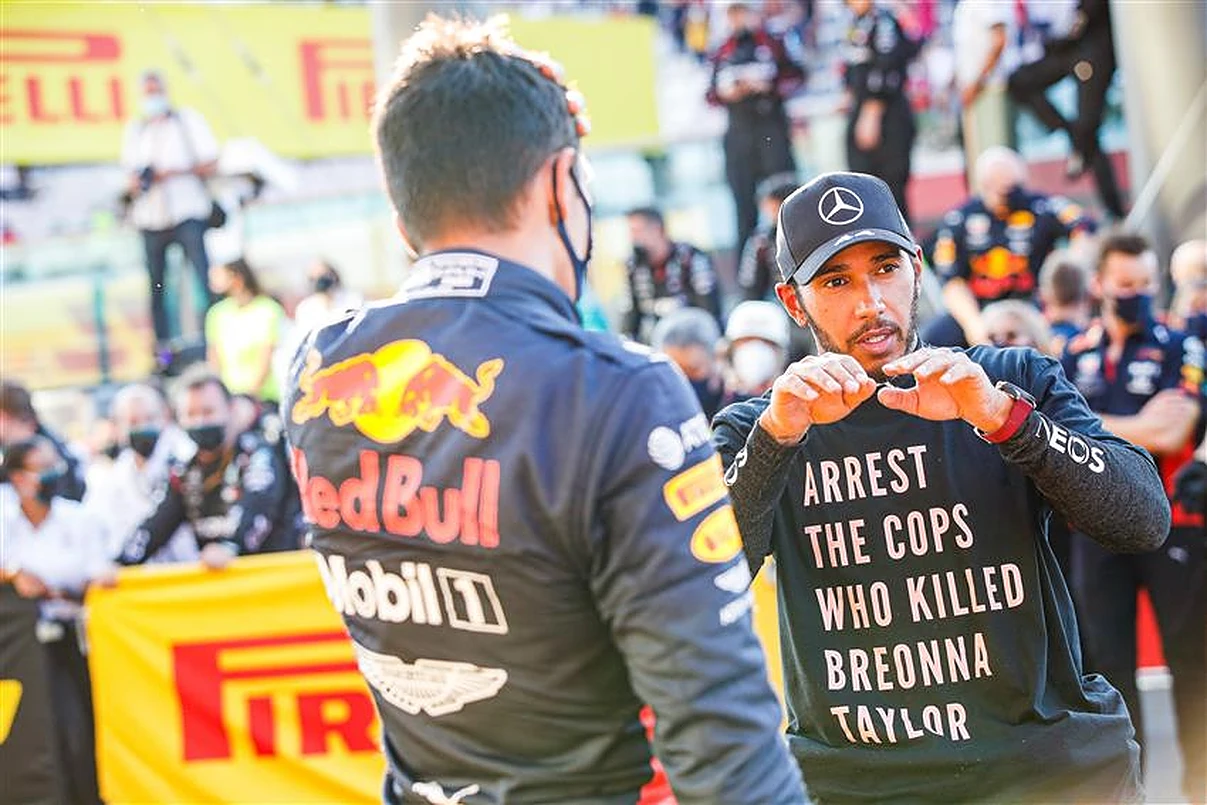Formula 1 is watched by millions of people all around the globe, with all 20 drivers being household names across all parts of the world.
Due to their notoriety and influence, drivers have often chosen to make political statements during race weekends, knowing that whatever they do will be broadcast to the world and will certainly be seen by those who can make a difference.
At the 2020 Tuscan Grand Prix, Lewis Hamilton wore a T-shirt on the podium that read ‘Arrest the cops who killed Breonna Taylor’, referring to a 26-year-old American who was shot and killed by police officers in her own home earlier that year.
The FIA then banned drivers from wearing T-shirt on the podium to try and prevent political messages during the celebrations, but this did not stop Hamilton from trying to use his power for good.

READ: Helmut Marko provides update on Red Bull’s future in F1 amid uncertainty
Homosexuality is illegal in some parts of the world, for example Qatar, and when Formula 1 made its first trip to the country last year, Hamilton chose to wear a bright rainbow helmet in support of the LGBTQ+ community, despite being advised not to.
Sebastian Vettel has also made sure that his fame is put to good use in recent years, finding himself reprimanded following the 2021 Hungarian Grand Prix for wearing a ‘Same Love’ T-shirt during the national anthem.
The FIA have now taken a more extreme measure to prevent drivers from making unauthorised political statements during race weekends, as they have now rewritten the rules surrounding the matter.
READ: Daniel Ricciardo tells Nico Hulkenberg to change his name
The new rules have banned “the general making and display of political, religious and personal statements or comments notably in violations of the general principle of neutrality promoted by the FIA under its Statutes, unless previously approved in writing by the FIA for International Competitions, or by the relevant ASN for National Competitions withing their jurisdiction.”
It will now also be considered a breach of the regulations if drivers show a “failure to comply with the instructions of the FIA regarding the appointment and participation of persons during official ceremonies at any competition counting towards and FIA championship.”
With drivers now risking FIA punishment if they choose to make an unauthorised political statement, it remains to be seen how deterred the likes of Lewis Hamilton will be should they see it necessary to send a message during a race weekend.

